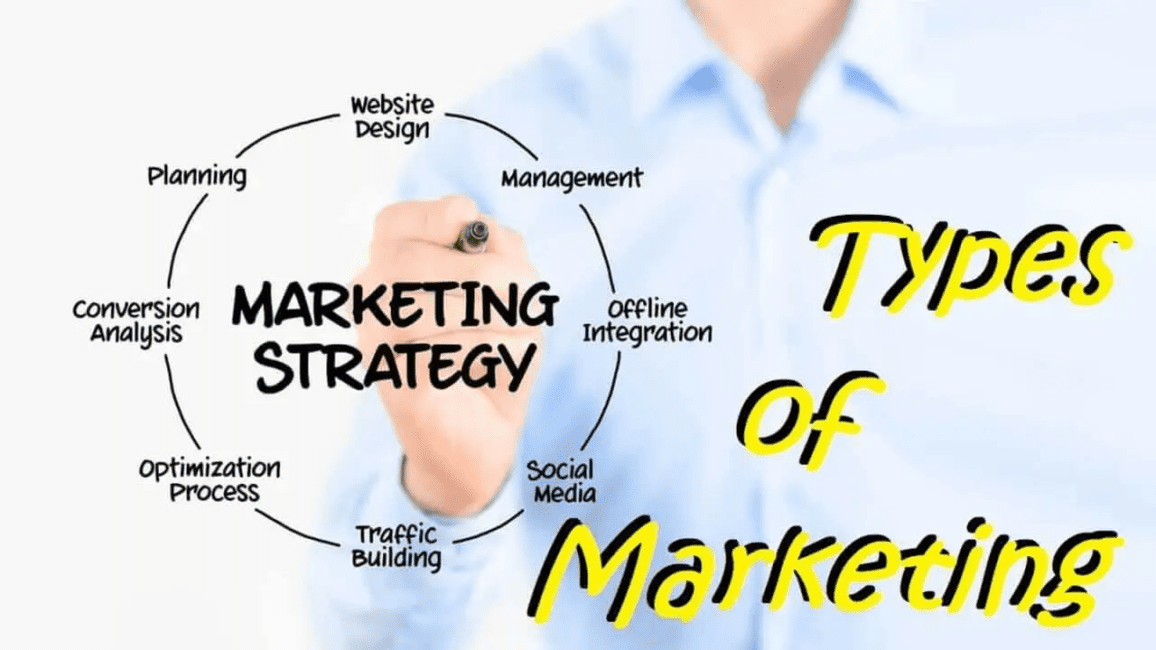This article will look at what a what market in the world is, various marketing in the world, advantages and disadvantages of marketing in the world, the importance of the digital market, classification of marketing in the world, its limitations.
A market is a gathering place for buyers and sellers to trade goods and services. The exchange may take place virtually or physically (like at a farmer’s market or a flea market) (as in an online market).
Supply and demand influence the prices at which products and services are exchanged in a market. In a market where there is competition, prices will usually tend to rise to the level where the quantity of goods or services that sellers are willing to offer and the quantity that buyers are willing to purchase equal each other. Markets may have a focus that is local, regional, national, or even global.
Types of Marketing and Market in the World

There are numerous types of marketing throughout the world, including the following:
Online marketing: Online marketing is the activity of promoting a company’s or brand’s offerings online utilizing methods that increase web traffic, leads, and sales. Online marketing involves utilizing a variety of techniques and platforms.
Content marketing: Marketing that involves creating and sharing valuable content to attract and retain a clearly defined audience.
Affiliate marketing: Is the practice of advertising a company’s goods or services on its behalf in return for a commission.
Influencer marketing: Marketing that involves working with individuals who have a large following on social media to promote products or services.
Local marketing: Is advertising that aims to attract consumers in a particular region, like a city or neighborhood.
Mobile Marketing: Marketing conducted through or on mobile devices, such as smartphones and tablets.
Traditional marketing: Advertising done through conventional media like print, radio, and television.
Event Marketing: Involves promoting goods or services during occasions like trade exhibitions, conferences, and festivals.
Public Relations: Marketing that entails establishing connections with the press and other influencers in order to obtain favorable coverage for a business or its goods.
Personal selling: Is a type of marketing that uses in person approaches to close sales, like showing customers a product or service.
Read Also: Top 9 Importance of Branding to your Business
Advantages of Marketing
In the modern world, marketing has many advantages, which include the following:
- Businesses can reach a wider audience and build brand recognition with the aid of marketing.
- It enables companies to communicate to prospective customers the benefits of their goods or services.
- Businesses may increase customer loyalty and keep their current consumers by using marketing.
- It can assist companies in standing out from the crowd and building a solid brand identity.
- The success and expansion of every organization depend on the generation of leads and sales, which marketing may do as well.
- Businesses can improve their products and services by using market research and insights that marketing can help them obtain.
- Building relationships with consumers and other stakeholders can aid firms in increasing customer satisfaction and loyalty.
Disadvantages of Marketing
The following are disavantages of marketing:
- Limit reach: Despite the internet’s widespread use, not everyone has access to the internet or a device that can connect to it. This implies that not everyone may be reached by digital marketing campaigns.
- Competition: It can be challenging for small businesses to stand out in the digital space due to the intense competition. This may make it more difficult to stand out and draw in clients.
- Ad blocking: To prevent seeing online advertisements, some people use ad-blockers. Businesses may find it challenging to reach their target market as a result.
- Lack of personalization: Compared to more conventional forms of marketing, digital marketing can be impersonal and may be less successful at fostering relationships with consumers.
- Privacy and security issues: Some people worry about their privacy and security when they are online and may be hesitant to give out personal information or make purchases.
- Technology dependence: Since digital marketing depends on it, any problems or outages with it could be disruptive. Businesses may find it challenging to reach their target market or offer their services as a result.
- Price: Digital marketing can be costly, particularly for small businesses that may lack the funds to fund a comprehensive campaign.
Importance of Marketing in the World
Marketing is vital because it allows businesses to connect with and engage with their target audiences. It helps in the promotion of goods and services, increases consumer awareness of brands, and draws in new clients. By giving consumers a great customer experience, marketing helps firms in keeping their current customers.
In the current digital era, where customers have greater access and choice than it has ever been, marketing has taken on great importance. Marketing enables firms to stand out in a competitive market and convince potential customers of the value of their goods and services.
Effective marketing can also aid companies in boosting sales and revenue, which are essential for any business expansion and success. Overall, it is impossible to overestimate the value of marketing in the world because it propels economic growth and development and influences how we see and use goods and services.
Read Also: 28 Great Small Business Growth Marketing Tips
Classification of Marketing in the World
There are various techniques to categorize marketing. Using the target audience as one example:
Marketing aimed at consumers: This kind of advertising targets people who are buying things for their own consumption.
Business to business (B2B) marketing: Rather than focusing on individual consumers, this style of marketing targets other businesses as clients.
Global marketing entails creating and putting into practice marketing plans in several nations all over the world.
The marketing mix, which includes the four Ps of product, pricing, promotion, and place, is another approach to categorize marketing.
Marketing that focuses on creating and promoting a particular product or product line is called product marketing.
Price marketing is the process of deciding on a product or service’s price as well as any discounts or other special pricing offers.
Marketing communication strategies are created and put into action in this sort of marketing to advertise a good or service.
Place marketing: This sort of marketing entails choosing the most efficient ways to get a good or service into the hands of the consumer as well as the best channels for distribution.
There are other additional ways to categorize marketing, such as industry, target market, and marketing objectives.
Limitations of Marketing
Marketing has many limitations which include the following:
Time and resources: Marketing involves planning, executing, measuring, and conducting research. Small enterprises that have constrained resources, such as people and money, may find this difficult.
Competition: The market is frequently characterized by fierce competition, making it challenging to distinguish oneself from rivals and draw in prospective clients.
Reaching the correct target market can be challenging because it’s not always obvious who the most likely consumers of a certain good or service.
Market saturation: In some circumstances, markets may experience a glut of comparable goods or services, making it challenging for a new entrant to establish a presence.
Regulation: Laws that control marketing operations include those that prohibit advertising to children, deceptive or fraudulent advertising, and the use of personal data. These laws may restrict the tactics that can be used in marketing efforts.
The important component of business is marketing, which enables businesses to engage with consumers and advertise their goods and services. It entails investigating and comprehending the target audiences, developing effective messaging and campaigns, and utilizing a range of platforms to reach the target audience.
With many businesses relying on social media, email marketing, and other online platforms to reach their consumers, marketing is now more digital and data driven than ever before. In the end, marketing objective is to increase demand for a businesses goods and services and boost sales.
Marketing goals might change depending on the particular aims and objectives of a company or organization. However, a few typical marketing goals are as follows:
- To build a strong brand identity and raise brand recognition to increase revenue and leads
- To improve market share and competitive advantage To foster client retention and loyalty
- To promote overall company profitability and growth to create and sustain connections with clients obtaining consumer feedback and understanding to guide product development and marketing tactics
- To support the organization’s overarching goal and values.
The promotion of sustainable practices or the aiding of a certain social cause are just a few examples of how marketing can help achieve specific social or environmental goals.
Read Also: How Barbie Cartoons Can Influence Your Child
